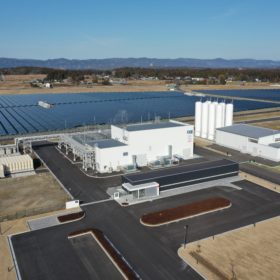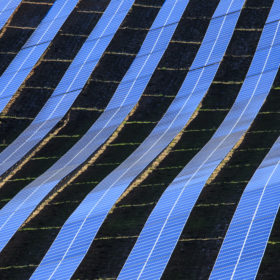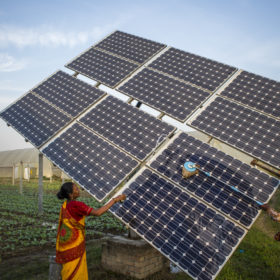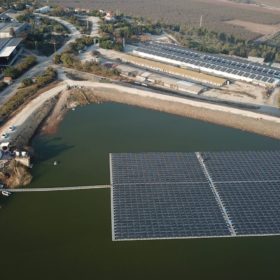Desalinating water with mobile solar-powered devices
A U.K. research team has developed a desalination mechanism that could offer a new way to provide drinking water and irrigate remote areas affected by natural disasters. Although the portable device is still in an initial, experimental phase, it can be powered by solar energy, as it has no moving parts and only requires small amounts of electricity.
Solar-powered hydrogen production in Japan
Toshiba has finalized construction of a 10 MW hydrogen plant in Fukushima prefecture which draws power from 20 MW of solar generation capacity as well as the grid.
Sri Lanka launches 150 MW solar tender
Sri Lanka’s Ceylon Electricity Board is seeking proposals for 20 solar power projects ranging in size from 3 MW to 10 MW. The projects are part of the third phase of the ‘Soorya Bala Sangramaya’ (Battle for Solar Energy) program.
Uzbekistan’s 200 MW PV tender attracts 54 bidders
The list of bidders includes companies and consortia from all over the world, suggesting that the procurement of large-scale solar is becoming increasingly competitive at a global level. The 200 MW solar park will be built in Sherabad, in southeastern Uzbekistan’s Surkhandarya region.
Dutch government doubles budget for upcoming SDE+ round to €4 billion
The Dutch government said that the budget increase will allow several solar projects that were excluded from the previous round to secure contracts in the next one. In the last round, the Netherlands Enterprise Agency received €9.06 billion of applications for just €5 billion of available subsidies.
Canadian Solar claims 23.81% efficiency for n-type poly module
The Chinese-Canadian manufacturer said the new results improve upon its previous record by around 1%. The achievement has been certified by Germany’s Institut für Solarenergieforschung GmbH (ISFH).
Big solar going back to Romania
Complexul Energetic Oltenia, a Romanian coal-fired power producer, plans to build 310 MW of PV capacity across four sites at one of its facilities. The projects are part of the company’s restructuring efforts and decarbonization plan.
Solar will turn vicious water-energy-climate cycle into virtuous loop
The International Water Management Institute is promoting the Solar Irrigation for Agricultural Resilience (SoLAR) initiative to expand the use of solar irrigation systems throughout Bangladesh, India, Nepal, and Pakistan. Proponents of solar irrigation pumps say that they can have a strong positive impact on groundwater.
Floating PV arrives in Israel
German contractor Belectric has deployed a 480 kW array on a reservoir near the Mishmar HaEmek kibbutz in northern Israel.
The ambiguous impact of battery storage on emissions
U.S. researchers have investigated whether energy storage deployment could actually drive up greenhouse gas emissions in the short term in some energy markets. The fact the existing literature considers only the dispatch of energy from storage facilities in the current fossil fuel-renewables energy mix, though, could understate the long-term emissions reduction benefits of such facilities.










